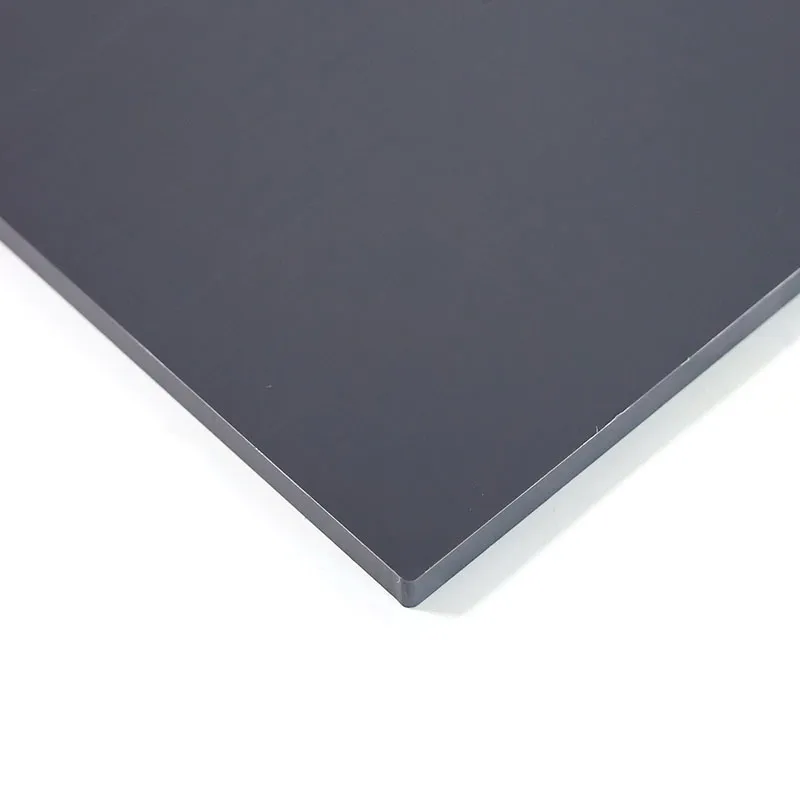Rhag . 06, 2024 20:47 Back to list
pvc sewer pipe
Understanding PVC Sewer Pipes A Comprehensive Overview
Polyvinyl chloride (PVC) has grown to be a popular material in various sectors, particularly in plumbing and drainage systems. Among its many applications, PVC sewer pipes stand out due to their durability, cost-effectiveness, and resistance to environmental stressors. This article explores the various aspects of PVC sewer pipes, including their advantages, applications, installation processes, and maintenance.
Advantages of PVC Sewer Pipes
1. Durability One of the primary benefits of PVC sewer pipes is their durability. Unlike traditional materials like clay or concrete, PVC does not corrode or deteriorate over time when exposed to moisture, chemicals, or varying temperatures. This resistance ensures that PVC pipes maintain their structural integrity for decades, reducing the need for frequent replacements.
2. Lightweight PVC pipes are significantly lighter than their metal or concrete counterparts. This characteristic not only makes them easier to transport and handle but also reduces the cost associated with installation. Labor costs are lowered, as fewer workers are needed to manage the pipeline.
3. Cost-Effective The overall cost of PVC sewer pipes is lower than many traditional materials due to their longevity and lower maintenance needs. While the initial investment may be comparable, the long-term savings in replacement and maintenance lead to a more economical choice for sewer systems.
4. Smooth Interior PVC pipes have a smooth interior surface, which minimizes friction and allows for efficient flow of wastewater. This reduces the likelihood of clogs and blockages, making maintenance easier and less frequent compared to pipes with rougher surfaces.
5. Chemical Resistance PVC’s structural makeup makes it resistant to a variety of chemicals, including solvents and acids found in household waste. This resilience enhances its suitability for sewer applications, where exposure to different substances is common.
Applications of PVC Sewer Pipes
PVC sewer pipes are widely used in residential, commercial, and industrial applications. In residential settings, they serve as the backbone of wastewater systems, efficiently transporting sewage from homes to municipal treatment facilities. In commercial applications, they can be used to manage larger volumes of wastewater and are often employed in connection with stormwater systems.
Additionally, PVC sewer pipes are used in underground drainage systems, irrigation systems, and as conduits for electrical wiring. Their versatility and adaptability make them a preferred choice for various construction and plumbing projects.
pvc sewer pipe

Installation Process
The installation of PVC sewer pipes involves several critical steps to ensure that they function correctly.
1. Planning and Permits Before installation begins, it is essential to conduct a site survey and obtain the necessary permits from local authorities. This step ensures compliance with building codes and regulations.
2. Trenching A trench is excavated to the desired depth, typically below the frost line to prevent freezing. The trench must be wide enough to accommodate the pipes and the necessary bedding material.
3. Bedding Installation A bed of sand or gravel is laid at the bottom of the trench to provide a stable foundation for the pipes. This layer protects the pipes from ground movements and helps with drainage.
4. Pipe Laying The PVC pipes are then laid in the trench, ensuring that they are properly sloped to facilitate wastewater flow. Joints between pipes are secured using appropriate fittings and adhesive, ensuring a leak-proof connection.
5. Backfilling After the pipes are installed, the trench is backfilled with soil, ensuring that the pipes are adequately covered and supported.
Maintenance of PVC Sewer Pipes
While PVC sewer pipes are low-maintenance, periodic checks are advisable to ensure optimal performance. Regular inspections can help identify potential blockages or signs of damage. In case of clogs, using a plumber's snake or pressurized water can often restore flow without the need for costly interventions.
Conclusion
PVC sewer pipes represent a significant advancement in plumbing technology, offering numerous benefits, including durability, cost-effectiveness, and ease of installation. Their versatility makes them suitable for a wide range of applications, from residential installations to large-scale industrial systems. Understanding their advantages and proper maintenance will ensure that these systems function effectively for years to come, contributing to efficient wastewater management and sustainability.
-
HDPE Natural Sheet: Durable, Food-Grade & Versatile Plastic Solutions
NewsAug.27,2025
-
Durable Glossy PVC Rigid Sheet | Premium High-Shine Panels
NewsAug.26,2025
-
Durable PP Rigid Sheet: Lightweight, Chemical Resistant Solutions
NewsAug.21,2025
-
PVC Grey Sheet for Extraction: Chemical Resistant & Durable
NewsAug.19,2025
-
Durable PVC Pipe Fittings for Plumbing & Irrigation Needs
NewsAug.18,2025
-
HDPE Steel Belt Reinforced Spiral Corrugated Pipe | High Strength
NewsAug.17,2025

